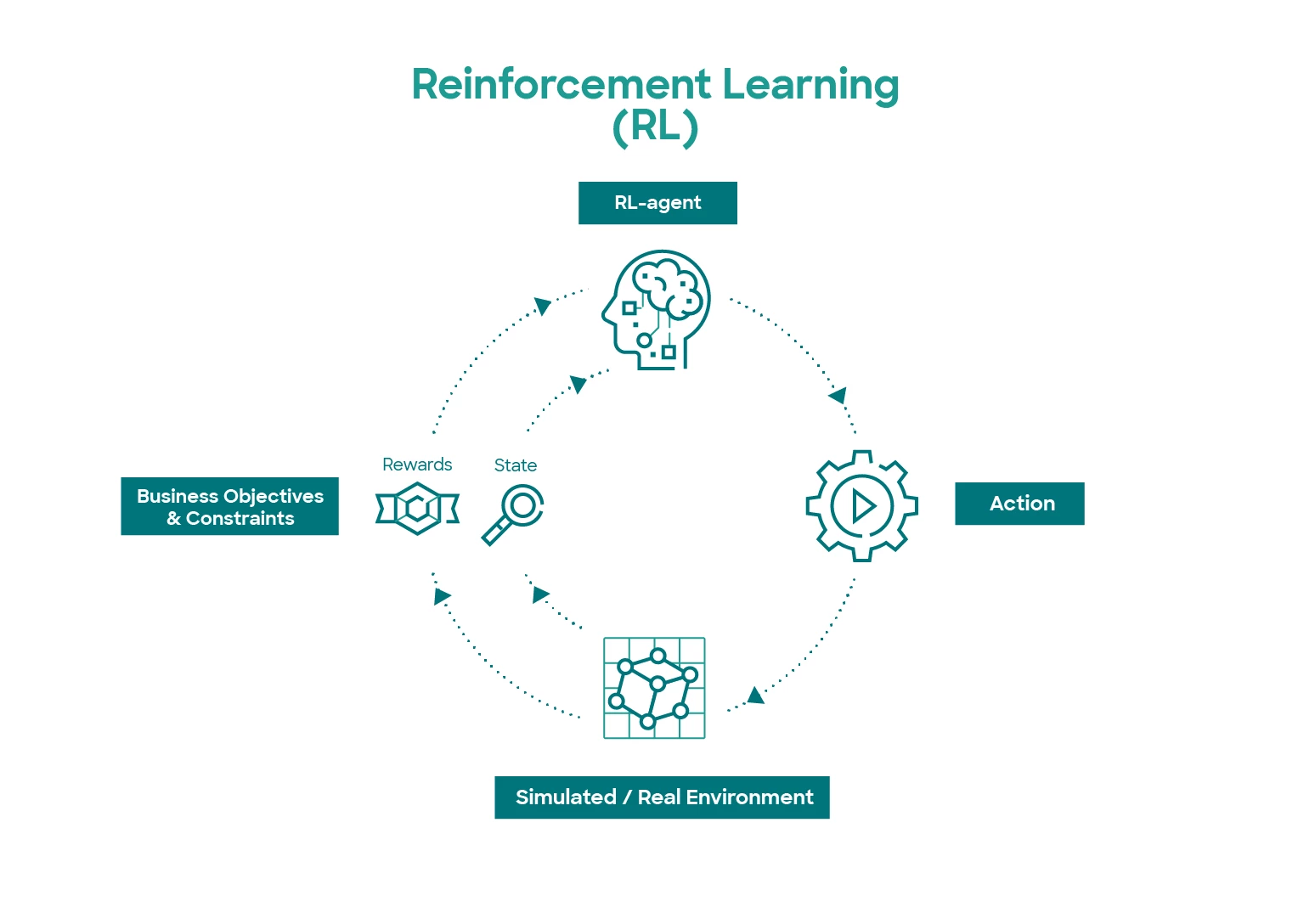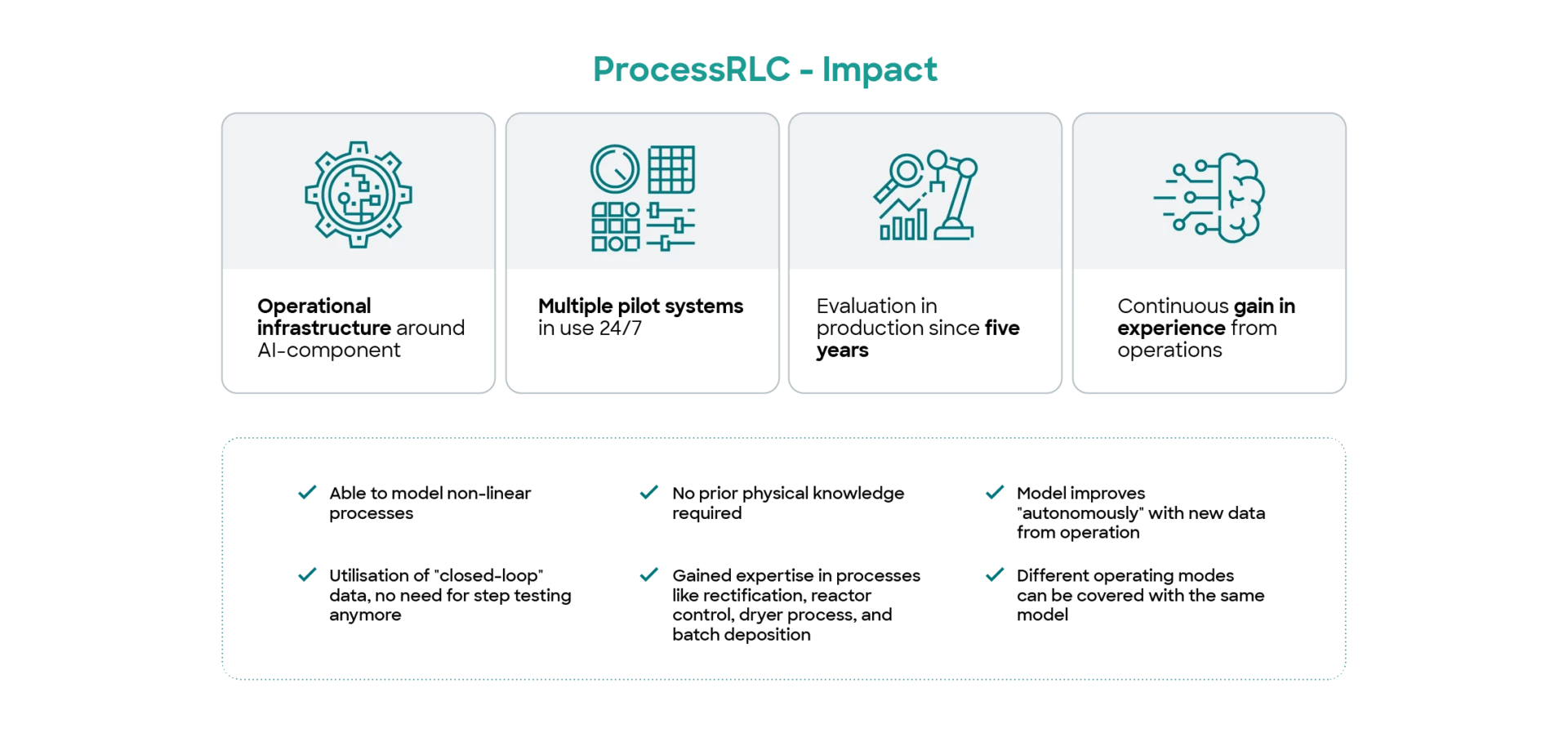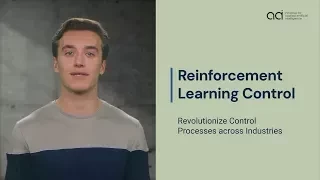In dynamic environments, businesses can drown in complexity, risking to miss critical factors. Navigating this complexity hampers holistic decision-making and optimal solution optimization, leading to inefficiencies and challenges with allocating resources. Reinforcement learning tackles all those problems. Unleash operational efficiency, conquer resource allocation challenges, and lead with confidence in the tech-driven landscape now.



Our RL solutions streamline decision-making in dynamic industries by analyzing vast amounts of data and simplifying resource allocation. The technology is adaptable to various operational modes which excel in complex scenarios, especially with intricate tasks like processing complex image or sensor data. Our RL solutions offer the following benefits:
- Boosted operational efficiency, addressing pain points in energy consumption, logistics, and manufacturing.
- Cost reduction through optimized decision-making and efficient resource allocation.
- Personalization for tailored solutions, enhancing the overall efficiency.
- Environmental responsibility by optimizing energy consumption to meet CSR goals.
- Bridging the SimToReal Gap in robotics by training agents effectively in real-world scenarios.

We have experts from diverse disciplines like computer science, engineering, physics, and mathematics to help solve your pain points. Customers value our hands-on experience from real projects and our interdisciplinary expertise that fuels our innovative approach. Plus, our partnership with the appliedAI Institute keeps us up-to-date with the newest AI advancements to boost your efficiency.
Our Reinforcement Learning service enables businesses to tackle intricate tasks by training intelligent algorithms for dynamic environments. Our solutions are scalable - no matter if you need small-scale problem-solving or large-scale industrial challenges.
What is Reinforcement Learning?
Reinforcement Learning is a branch of machine learning where an agent learns to make decisions by interacting with an environment. The agent utilizes feedback via rewards or penalties, adapting its behavior over time
to optimize cumulative rewards. The process involves learning through trial and error, aiming to make informed decisions in complex and dynamic environments.
How Reinforcement Learning works


At appliedAI, we offer Reinforcement Learning Control (RLC) alongside classical Reinforcement Learning (RL). Reinforcement Learning Control optimizes control processes, enabling autonomous and efficient control of complex systems. This reduces costs and enhances scalability, addressing the challenge of suboptimal performance in traditional control systems.
With RLC, companies can achieve continuous, autonomous optimal control with AI, eliminating the need for continuous recalibration and deep domain knowledge. Our RLC solutions accurately learn environmental behavior and include additional components for enhanced usability and monitoring.

When implementing our RLC solutions, companies can expect the following benefits:
Reduced errors and increased efficiency of control processes
Reduced costs and increased quality
Easily monitor data and model quality
Minimized maintenance effort

Reinforcement Learning Control at a glance
Exemplary Use Cases for RL & RLC
Manufacturing and Automated Robots
Improvement of the efficiency of complex manufacturing processes, such as material handling. In addition, with help of RL, robots become more accurate and faster in completing tasks automated
Image processing
E.g. Traffic analysis and real-time road processing by video segmentation or scanners understanding and interpreting text
Production & Chemical plants
Optimal control of the production plants to improve purity of products, boost efficiency and reduce re-calibration
Optimal control of buildings
Control buildings and its utilities (lights, heating etc) to minimize costs

Read our case study about the usage of Reinforcement Learning Control at Linde to boost the company's efficiency and reduce costs.
Let's talk about your need now
Unfortunately, we cannot display the form without your consent. We use Hubspot forms that set functional cookies. Please accept functional cookies in the settings to be able to use the contact form. Or write us an email: info@appliedai.de.
